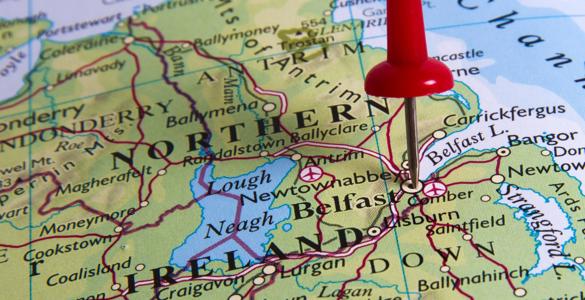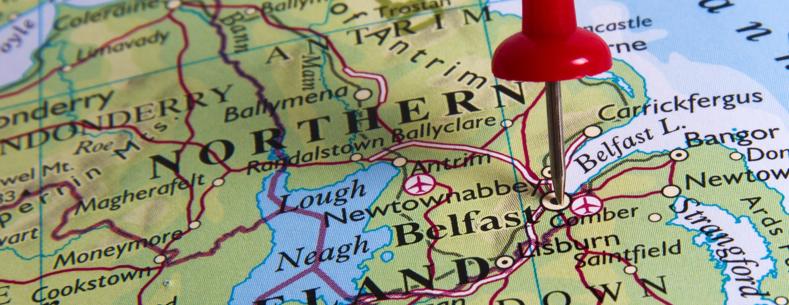The Northern Ireland Protocol Bill was introduced in the UK Parliament on 13 June. If passed, it would change the effect of the Northern Ireland Protocol and related legislation in domestic law.
The UK Parliament has been here before. When the Internal Market Bill was introduced, it too would have made changes affecting the Protocol. In the end, those provisions were removed by the UK Government, who admitted they would breach international law in a “limited and specific” way.
The Northern Ireland Protocol Bill is different because it is neither ‘limited’ nor ‘specific’. It contains broad provisions which could be used by UK Ministers to change key parts of the Protocol and make other changes now and in the future.
The Bill contains provisions which cover devolved matters and the Senedd’s consent will be sought. This article explains what this means for Wales and the Welsh Government.
What will the Bill do?
In its current form, the Bill would:
- End the effects of certain parts of the Protocol in domestic law, enable Ministers to disapply related aspects and to put in place “suitable” domestic arrangements in their place;
- Change the rules for trade in goods, specifically for the movement of goods between Great Britain and Northern Ireland and for the regulation of goods, and give powers to Ministers to make other arrangements;
- Change other rules agreed with the EU, including for subsidy control, VAT and customs and give powers to Minister to make other arrangements;
- Give broad regulation making powers to Ministers to implement changes to the Protocol agreed with the EU, or any new agreement that might replace it; and
- Significantly reduce the role of the European Court of Justice.
The Bill would grant UK Ministers power to give regulation-making powers to devolved Ministers to do these things within their competence. This includes to suspend or repeal domestic law relating to the Protocol. It would also give devolved authorities powers to spend money in preparation of carrying them out.
The Bill would grant Ministers and others, like the HMRC, broad powers which could be used with minimal tests. For example, several references are made to Ministers using powers “to make any provision” they “consider appropriate”. The Hansard Society has suggested this language may be narrowed as the Bill passes through Parliament.
Welsh Ministers must comply with international obligations
The Bill raises questions over whether the UK Government might breach its international law obligations.
Welsh Ministers must comply with the UK’s international obligations, including the Withdrawal Agreement. The First Minister explains that Ministers:
Are required to take into account international obligations when making decisions, they could face Judicial Review or action from the Secretary of State for failing to do so.
A number of mechanisms exist to ensure that actions taken by Welsh Ministers are compatible with the international obligations, as described in our article from February. This includes that the UK Government can intervene to ensure compliance or to prevent action that would be incompatible.
However, the devolution settlement is silent on the position of Welsh Ministers in the event that the proposed actions of the Secretary of State are considered to be incompatible with international obligations.
The Welsh Government faces tough choices
Recently, the Minister for Rural Affairs informed the Senedd’s Legislation, Justice and Constitution Committee that she had consented to UK Government regulations which “raised questions” of compatibility with WTO rules and the UK-EU Trade and Cooperation Agreement.
The Committee raised concerns regarding compliance of those regulations with international law. However, the Minister advised that the regulations “were necessary in order to allow goods to continue to flow across the Irish Sea”. She stated they are “temporary in nature and I believe it to be necessary and proportionate”.
The Welsh Government must now return to these issues in drawing its conclusions on the Bill.
What role does the Senedd have?
The Bill will require Senedd consent and would provide regulation-making powers to the Welsh Ministers for the future. If used, the Senedd would be charged with scrutinising and passing those regulations.
Section 114(1)(d) of the Government of Wales Act 2006 allows the UK Government to step in and prevent the Senedd from legislating in breach of international obligations but this only applies to Bills.
The devolution settlement does not account for the position of the Senedd in the event that UK Government legislation is proposed in an area of devolved competence and which is considered incompatible with international obligations.
Ultimately, it is the UK Government that is responsible for UK compliance with international obligations.
Broader implications and what’s next
Other matters within the Senedd’s remit could also be impacted by the Bill’s introduction, including the Withdrawal Agreement and the Trade and Cooperation Agreement, common frameworks, the operation of the UK Internal Market Act 2020 and other post-Brexit legislation.
It could also impact Wales’ international relations, particularly Ireland-Wales cooperation agreed by the Welsh Government last year.
The EU has issued an initial response to the Bill, stating that “unilateral action is damaging to mutual trust”. It will assess the legislation and consider its response, which includes infringement proceedings against the UK.
Next week, both the First Minister and the Counsel General will appear before Senedd Committees where the Bill is likely to be discussed. Their appearances can be viewed live or on catch up at Senedd.TV, as follows:
- Counsel General at the Legislation, Justice and Constitution Committee [Monday 20 June, from 13:30];
- First Minister at the Culture, Communications, Welsh Language, Sport, and International Relations Committee [Thursday 23 June, from 9:30].
Article by Sara Moran, Senedd Research, Welsh Parliament






